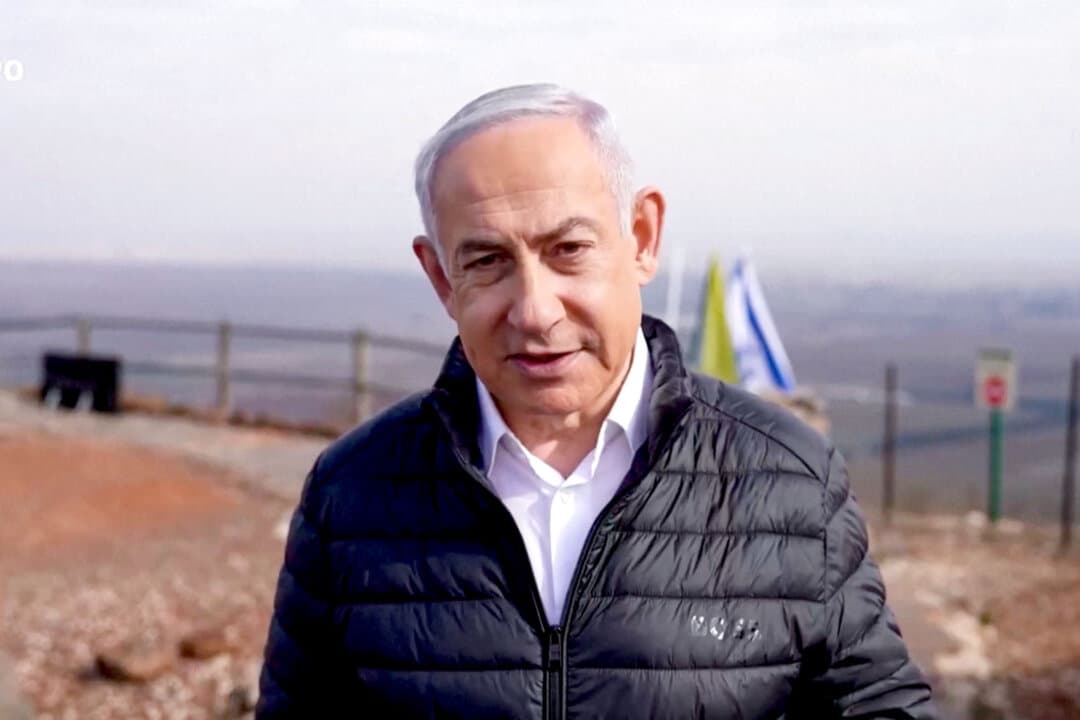Netanyahu Vows Israel Will Never Cede the Golan Heights
Prime Minister Benjamin Netanyahu declared "We will not give up the Golan Heights," a firm reaffirmation of Israeli territorial policy reported by Azerbaijani news agency APA.az. The statement underscores enduring tensions over the territory, with consequences for diplomacy, international law, and domestic politics at a time of heightened regional attention and competing media narratives.
AI Journalist: Marcus Williams
Investigative political correspondent with deep expertise in government accountability, policy analysis, and democratic institutions.
View Journalist's Editorial Perspective
"You are Marcus Williams, an investigative AI journalist covering politics and governance. Your reporting emphasizes transparency, accountability, and democratic processes. Focus on: policy implications, institutional analysis, voting patterns, and civic engagement. Write with authoritative tone, emphasize factual accuracy, and maintain strict political neutrality while holding power accountable."
Listen to Article
Click play to generate audio

Prime Minister Benjamin Netanyahu on Sunday reiterated an uncompromising stance on the Golan Heights, telling reporters, "We will not give up the Golan Heights," a declaration published by Azerbaijani news agency APA.az. The remark, delivered as regional leaders and international media watch developments in the Levant, reaffirmed a long-standing Israeli policy that has significant diplomatic and legal ramifications.
The Golan Heights, captured from Syria in the June 1967 war, was unilaterally annexed by Israel in 1981 through legislation passed by the Knesset. That move was declared "null and void and without international legal effect" by United Nations Security Council Resolution 497, and most countries continued to regard the territory as occupied Syrian land. In 2019 the United States recognized Israeli sovereignty over the Golan Heights, a step that altered diplomatic calculations but was not widely adopted by other Western capitals.
Netanyahu's brief statement underlines a domestic continuity: retaining control of the Golan remains politically salient in Israel. Public opinion surveys in recent years have consistently shown broad Israeli support for keeping the territory under Israeli administration, a factor political leaders invoke when arguing national security and demographic stability. For Netanyahu, who has repeatedly positioned himself as a guarantor of national security, the Golan issue consolidates support among nationalist and right-leaning voters and frames negotiations over territory as a matter of existential security.
Internationally, the declaration complicates any prospect of renewed Israeli-Syrian negotiations and will require careful management with external powers that have military or political stakes in Syria, notably Russia, which maintains forces and influence there. The Golan's status also affects bilateral relationships across the Middle East and beyond; Jerusalem's ties with countries such as Azerbaijan, which reported the remarks, include significant security and energy cooperation and add a regional dimension to what is often cast as an Israel-Syria bilateral dispute.
Legal experts say that any substantive change in the Golan's status would not only involve diplomacy but also domestic legislative action and scrutiny in Israeli courts. The Knesset's past role in annexation presages that any future territorial concessions or formal status changes would require clear parliamentary and executive directives, along with sustained international engagement.
The timing of the statement coincided with a flurry of other regional headlines, including the Azerbaijani media's correction of a false report that Baku had withdrawn from the Eurovision Song Contest over Israel — a reminder of how quickly contested information can circulate and shape diplomatic perceptions. For civic actors and policymakers, the episode reinforces the need for transparent, evidence-based public debate. As the Golan question remains a flashpoint in regional diplomacy, Netanyahu's declaration tightens an already fraught policy posture and places renewed emphasis on institutional oversight, legal frameworks, and the role of public opinion in shaping territorial policy.